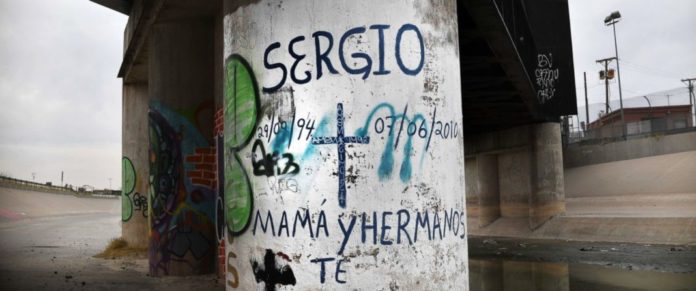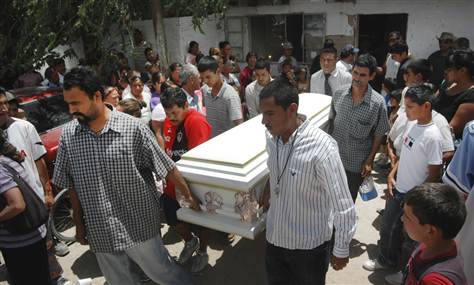
A case has come before the Supreme Court that has, for the first time, split the justices’ decision down the middle 4-4. While the final judgment hasn’t been handed down, it’s likely that the 2010 case of a Mexican boy shot near the US border will be decided by incoming Justice Neil Gorsuch.
According to the boy’s parents, who are Mexican residents, their son was playing a game with friends. The point of the game was to run up to the border wall, touch it, and run back down the hill that the wall touched. US Border Agent Jesus Mesa was on bike patrol that day when he found it necessary to kill Sergio Hernandez, age 15, from the US side of the border. The shooting took place in the border area between El Paso Texas and Juarez Mexico.
The Mexican government attempted to have Mesa extradited to Mexico to stand trial, however the US government refused to comply. The US also declined to file any charges against Mesa, leaving the boy’s parents without any legal recourse. The parents are only seeking the ability to sue Mesa and the US directly, however, it’s been a long battle just to get this far. The court has acknowledged that thus far it is split on its decision, which leaves the incoming justice to decide the case. With the liberal justices deciding that the parents do have the right to sue in the US, and the conservative justices deciding they do not, it is probable that Gorsuch will follow the party line and vote to end the parent’s struggle without justice.
Cases like this have been touched upon in the lower courts. Deciding whether the constitution applies to foreign citizens, outside the boundary of the US, is not a simple one. Past cases involving Fourth Amendment issues at the border don’t receive the protection of the Fourth Amendment, however, this case is different. It involved the egregious taking of a life.
Previous to this case making its way to the Supreme Court, it had already been ruled that Mesa was protected by qualified immunity. If the case is decided in the family’s favor, it will upend that immunity and allow for a federal civil rights violation trial.
The final decision might in fact be a political one, and not based on common sense or the law. Justice Roberts stated that if the case is found in favor of the parents, it will open “the floodgates” of lawsuits made by people who were injured by the US in some way, outside the borders of the nation, who would now claim constitutional protection. On the other hand, Justice Ginsberg stated that the case has “United States written all over it.” Justice Breyer offered a third perspective, stating that an exception could be made for this case due to Fourth Amendment being “jointly maintained between the two nations.” Breyer has also stated in the past that Guantanamo detainees do have constitutional rights, thus making this case constitutionally protected.
Mesa’s lawyer is standing firm that the family doesn’t have the legal grounds to sue, and makes no attempt to defend the shooting itself, which Mexico had already condemned. The implications of this ruling will have wide standing effects and will send a clear message to border patrol agents as to whether they are allowed to shoot indiscriminately in the future.
Sources: Bloomberg, USA Today.
This article (Supreme Court Split Over Controversial Border Shooting of Mexican Teen) is a free and open source. You have permission to republish this article under a Creative Commons license with attribution to the author and AnonHQ.com.
Supporting Anonymous’ Independent & Investigative News is important to us. Please, follow us on Twitter: Follow @AnonymousNewsHQ







only US Citizens can have US rights. .
Murder is murder. If the footage from the phone discredited the border agent’s testimony and that he didn’t shoot out of self defence but only because he wanted to then clearly it’s murder. The fact that he lied only proves he had a guilty conscience and tried to cover his tracks. He should be tried or at the very least made to resign for his wrongful actions that clearly weren’t necessary.